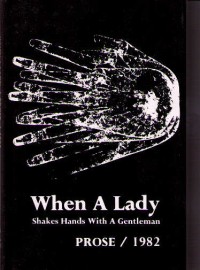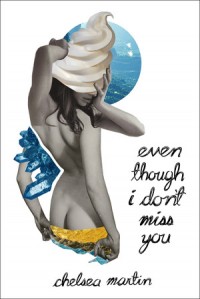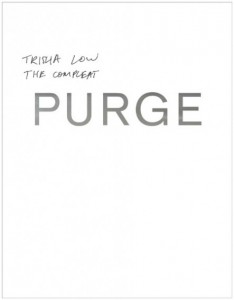20 Points: When a Lady (Shakes Hands With a Gentleman)
 |
When a Lady Shakes Hands With a Gentleman
by Nikolai Bokov, Mark Insingel, Gertrud Leutenegger, Claude Ollier
Red Dust Books, 1982
96 pages / $8.95 buy from Amazon
|
1. Throughout the course of When a Lady, a very engaging 1982 collection from Red Dust, Inc, the contributors display a rigorous commitment to the avant-garde tradition of de-automatizing perception, as outlined by Shklovsky, and broken down like a boss here by A.D. Jameson
2. The Belgian novelist/ Concretist poet Mark Insingel reworks aphorisms and banal lanuage tropes.
3. “When a lady shakes hands with a gentleman (plucks out a gentleman’s eye) she does not remove her glove.”
4.
5. “How can the drop that made the cup run over be the same as the drop to which the cup is drained? (How can the drop to which the cup is drained be the same as the drop that made the cup run over?)”
6. “A Loves B who loves C who is adored by D, the only concern of E who wants to get rid of F who is courted by G who receives attentions from H, the idol of I who would be content with J who cannot leave K in peace who will not part from L who would prefer to go to M who has gone off with N who cannot forget O who would like to go back to P who has an eye on Q who would gladly be wooed by R who is making advances to S who is only interested in T who likes U, U need not despair at any rate (V, W, X,Y,Z).”
7.
8. Insingel looks for entrenched meanings and potentialities. He is repetitive, and redundant, and often very funny. The big blocks of mutable text ultimately represent his project, a sort of frustrated response and working with and through degraded language.
9. “Rare is beautiful/Rare is wonderful/Rare is awful./Rare is horrible./Rare is incomprehensible./Rare is possible./ Rare is deniable./ (You don’t have to accept it as true, you are not obliged to see it (it isn’t being thrown into our teeth), you need not have anything to do with it (go into it) it can’t frighten you at all (the chances are much too small), you can dream about it (wet dreams—nightmares), you can actually have a cozy chat about it.)”
10. Claude Ollier, explores sensations connected with memory images. In his project he interrogates some of the “word as signifier” aspects of language, dwelling on strange associations and essentially personal multiplicities in words.
July 17th, 2014 / 12:00 pm
Jesse Prado’s notes from the 2014 Hustle and Flow (i will always be your whore) tour

you know how alex said we were gonna do eight cities in ten days? we did seven; Brooklyn, Boston, DC, Philadelphia, Baltimore, Atlanta, and Nashville. that’s seven. i’ll bet if i said anything to alex she would say she said seven. anyway, this is a review of how i think i did in every one of those cities.
25 Points: Even Though I Don’t Miss You
 |
Even Though I Don’t Miss You
by Chelsea Martin
Short Flight/Long Drive Books, 2013
|
1. In this book, Chelsea Martin reminds me of my girlfriend. She reminds of all my ex-girlfriends, she reminds me of everybody’s girlfriend. It’s hard to pinpoint why. Is she the essence of contemporary girlfriendness?
2. It provides an insight sometimes into particular shades of emotion that I don’t necessarily seem to understand (not that I want to get all ‘Men are from Mars, etc ’ or some such popular-silliness about this point).
3. Other times, it’s nice to know that I’m not entirely wrong in my assumptions about ‘What might be wrong?’, ‘When something might be wrong?’
4. I have to declare an interest and that is that I’m not really in a relationship with Chelsea Martin but this book feels so much like being in a relationship as much from a male as from a female perspective that I can’t help but think that I am and that this qualifies it as a great success in that department.
5. “There is a piece of clothing thrown on the floor in the shape of what I look like to myself”. This is a beautiful, economical image; an everyday occurrence raised to something just v profound. I imagine it to be a denim skirt for some reason.
6. It reminds me of a line from an e-book, by someone, an old free e-book by someone, possibly Richard Brammer that I can’t find at the moment (maybe I imagined it) about ‘Your bra will fade on the radiator just like the rest.’ Any ideas?
7. The sentence that many reviewers have picked from this book is worth repeating in full:
“Being in a relationship for a very long time feels just like being single except that I can’t remember the last time that I was alone for five hours.”
This has the same periphrastic quality as that which I discussed in relation to Spencer Madsen (elsewhere in a 25 Points Review for HTMLGIANT). It’s almost like a really good, lengthy title appended to a very successful piece of conceptual art. I can see why so many reviewers chose to pick it out.
8. The relationship theme is undercut throughout with the many conversations between the ‘I’ and the ‘You.’ Often humorous, sometimes sad, occasionally refreshingly absurd, like a transcription of direct speech really is. See – this is what I meant in points 1-4.
9. Again, and in relation to a Spencer Madsen review that I have just written and so which is fresh in my mind but which might as well be seen as a recurring theme, a necessarily recurring theme, of all contemporary literature, that of the wide-open spaces of potential for metaphor, analogy, etc., when it comes to everyday technological digital life, a relatively fresh opportunity ripe for figuration, Chelsea’s line: “I feel like everything I write could be mistaken for theory about Adobe Photoshop’s Clone Stamp Tool” takes some beating. Apologies, that was an awful sentence, I wrote it backwards.
10. I don’t think I’m going to apologise for mentioned other writers in these reviews. Everything has a context, right.
July 15th, 2014 / 1:50 pm
Pussy Guerilla Face Banana Fuck Nut by RC Miller
Gobbet’s dangerous and exenterating Pussy Guerilla Face Banana Fuck Nut by RC Miller is now available
Gobbet exclaims that Pussy Guerilla Face Banana Fuck Nut is all of those things. But mostly it’s a book sticky with Frederick Seidel’s wet dreams. It will burn your mouth and it will tickle the hymen you framed on your wall so it never got broke. These poems never believed in anything but the gruesomeness of the casualness of their nonbelief. These poems are shrinking pockets of mummified hope. They are what beauty becomes in the ‘Fuck You’ stare. They are the grace of dying slowly with your head in the shitter, your arse in the air, and the soul of God in your masturbator’s hand
Also, check out a beautiful and hard-prophetic poem of RC’s that’s just now gone live at Paragraphiti.
xoxoxoxoxoxoxoxooxoxoxoxoxox
July 15th, 2014 / 10:00 am
On Udaff.com
Live lousy fucking in the world.
My head hurts a hangover
And in a pocket nor spear, fucked,
Pass the bottle fucking empty
Only them, of course, is not enough.
I fucking, fucking, do not,
I would only hangover
And then all the shit, shit,
And on the wall, fucked, smudge …
This proverb – not a fairy tale,
Tale will be ahead fucking:
This is the beginning of the earliest extant post published in the “Creatives” section of the Russian website Udaff.com, the title translated by Google Translate as “Lewd tale about global catastrophe” (“Непристойная сказка про мировую катастрофу”). Udaff.com describes itself as a repository of counter culture literature. It’s named after the site’s administrator, Udav (Udaff being a faux anglicisation), who posts new works almost every day in categories including News, Creatives (fiction and poetry), Controversy, Book Reviews and many others. The Creatives section, with over 50,000 entries since the site launched in 2000, is the most popular, featuring poetry and fiction that ranges widely in length and content, but is generally short and often serialized.
July 14th, 2014 / 10:00 am
A Review of Vulnerability on Trisha Low’s The Compleat Purge
 The Compleat Purge
The Compleat Purge
by Trisha Low
Kenning Editions, 2013
240 pages / $15.95 Buy from Kenning Editions or Amazon
I listen to NPR’s Morning Edition on Verdi’s 200th birthday. Soprano Sondra Radvanovsky says she loves Verdi’s operas: “People can relate, and say ‘Wow! I’m not the only person who fell in love with the wrong person,’ or ‘Oh gosh, I’m not the only person who made the wrong choice.’ Verdi makes people realize it’s OK to be human.”
This “realization” is the purge. Finger down the throat, razor from the drawer, opera on the stage. Purge. It’s OK to be human.
Trisha Low’s The Compleat Purge: a purge in three acts.
*
Act I: Low writes her last will and testament, turns a legal formality candid, into “gushy epistolaries” at age 6, then 13, 15, 17, 19, 20, 21, 23, 24. Suicide notes to her parents, to first loves, old friends, new friends, apologizing, professing undying love, willing Hitchcock DVDs, quoting from Murakami and Batman.
Low’s suicide notes are not gateways to reading her work, they’re the work itself. She’s keenly aware of Plath, Sexton, and Woolf. With Low brushing off the coup de grâce, the letters refuse ‘authentic’ truth.
Vulnerability as “elaborate conceptual joke.”
In an interview, Low quotes Joseph Kaplan: “I am interested only in the successful, annihilative manifestation of the poem, as an absolute violence.”
In John Cassavetes’ film Faces, characters pulse through impromptu sing-a-longs, threats, slaps, insults, a buzz of reverie and devastation. Overcome after cheating on her husband with the young playboy Chet, Maria downs a handful of sleeping pills. Chet finds her on the floor, tosses her in the shower, sticks his fingers down her throat, anything to wake her up, slaps her until she cries herself awake. Moment of calm. Chet lights a cigarette for her, leans back on the bed. “Nobody cares. Nobody has the time to be vulnerable to each other.”
Vulnerability as violence.
July 14th, 2014 / 10:00 am
Subito Press is having their inaugural Creative Nonfiction/Hybrid Genre/Lyric Essay Contest. They’re looking for innovative, experimentally-slanted creative nonfiction/ hybrid genre/ lyric essay/ comics/ verse plays/ visual poetry, etc. The only aesthetic guidelines: no poetry & no fiction. Judged by John D’Agata. Submissions are open from June 15th to August 15th. Information, guidelines & to submit HERE.
Sarah Schweig
THEORY OF ASH
Behold the THEORY OF ASH!
shouts the woman in the public square
whose face is a carnival mask.
Some spectacle is surely about to take place.
What will you do when your mother is dead?
What will you do when your mother is dead and you come
face to face with the woman whose face is a carnival mask?
The Man of Good Questions asked.
What could I say to The Man of Good Questions?
I lay down with the Injured Thing in the grass.
And that’s when the crowd gathered. They gathered
in refutation of all refutations. They gathered in the absence of
anything else. What is the meaning of the THEORY OF ASH?
The Man of Good Questions is asking now. (Ascending the stage
is the woman whose face is a carnival mask.) I don’t know, I tell him.
I cannot even begin to describe the beauty of what is about to happen.
Bio: Sarah Schweig is the author of the chapbook S (Dancing Girl Press), and her poems have appeared or are forthcoming in The Atlas Review, Black Warrior Review, BOMB, Boston Review, Maggy, Painted Bride Quarterly, The Philadelphia Review of Books, Verse Daily, The Volta, and Western Humanities Review, among others. A graduate of the University of Virginia and Columbia University, where Ben Lerner awarded her work the David Craig Austen Memorial Award for Poetry, and former Ruth Lilly Fellowship finalist, Tennessee Williams Scholar at the Sewanee Writers Conference, and Emerging Poet Resident at Poets House in Manhattan, she works as a senior writer at a criminal justice think-tank in New York City and studies philosophy at The New School for Social Research.
On Being Weird and Fashion

I remember it very clearly. It was Chinese New Year, this year: to celebrate, I wore red pants and a black and white polka dotted shirt and a red and brown cardigan. I looked down at myself and thought: Who let me out of the house like this? Luckily, I had not left my house. I was pacing in my backyard, smoking a cigarette, making circles and circles. I looked down at myself and had an epiphany: I’m fucking weird.
This is funny because for most of my life, I’ve tried to be weird, and then one day, I just became weird.


